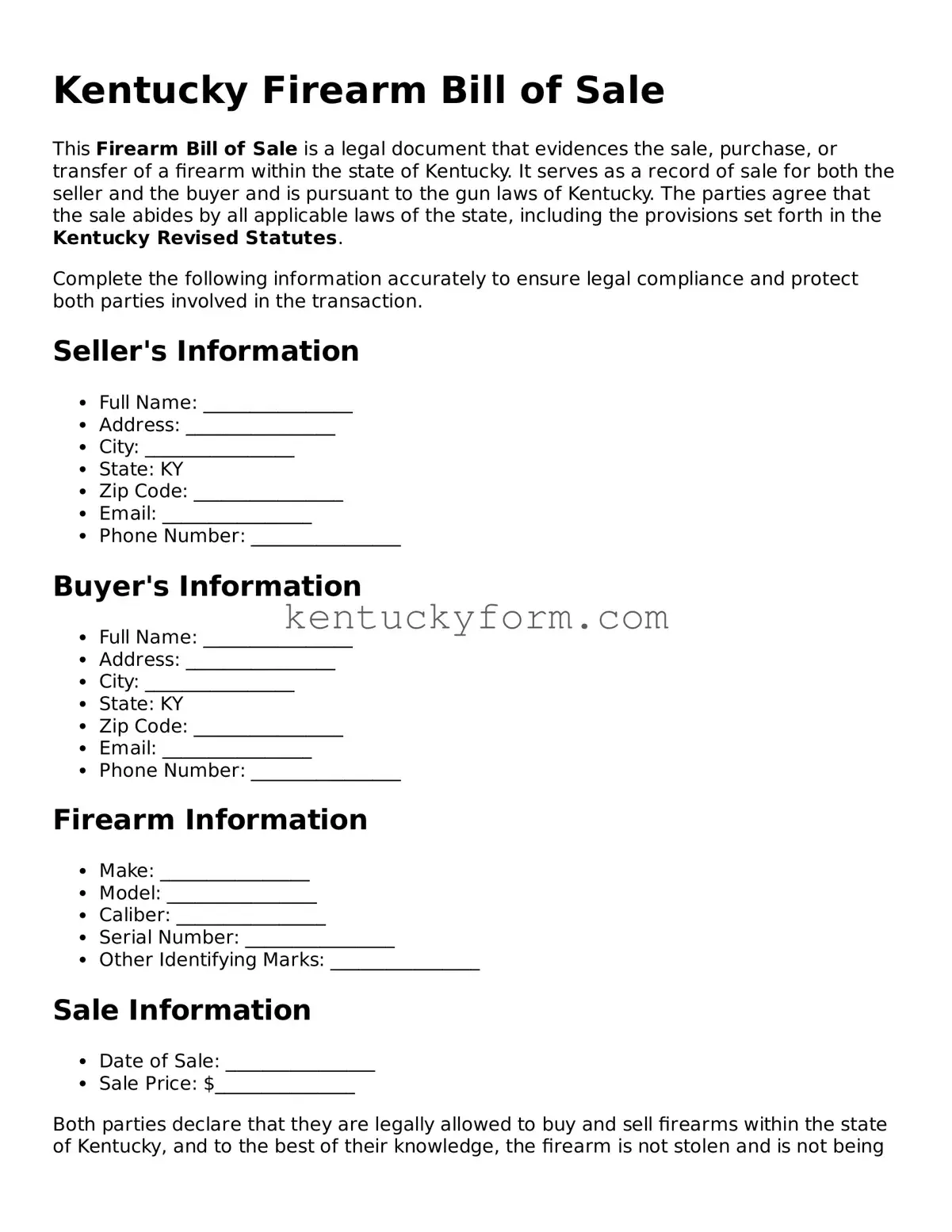Free Firearm Bill of Sale Form for the State of Kentucky
The Kentucky Firearm Bill of Sale form is a document that verifies the legal sale and purchase of a firearm in the state of Kentucky. It ensures that the transaction between the buyer and seller is transparent and complies with state laws. To streamline your firearm transfer, fill out the form by clicking the button below.
Modify Document

Free Firearm Bill of Sale Form for the State of Kentucky
Modify Document

Modify Document
or
Free Firearm Bill of Sale File
One quick step left to finish
Edit, save, and download Firearm Bill of Sale online with ease.